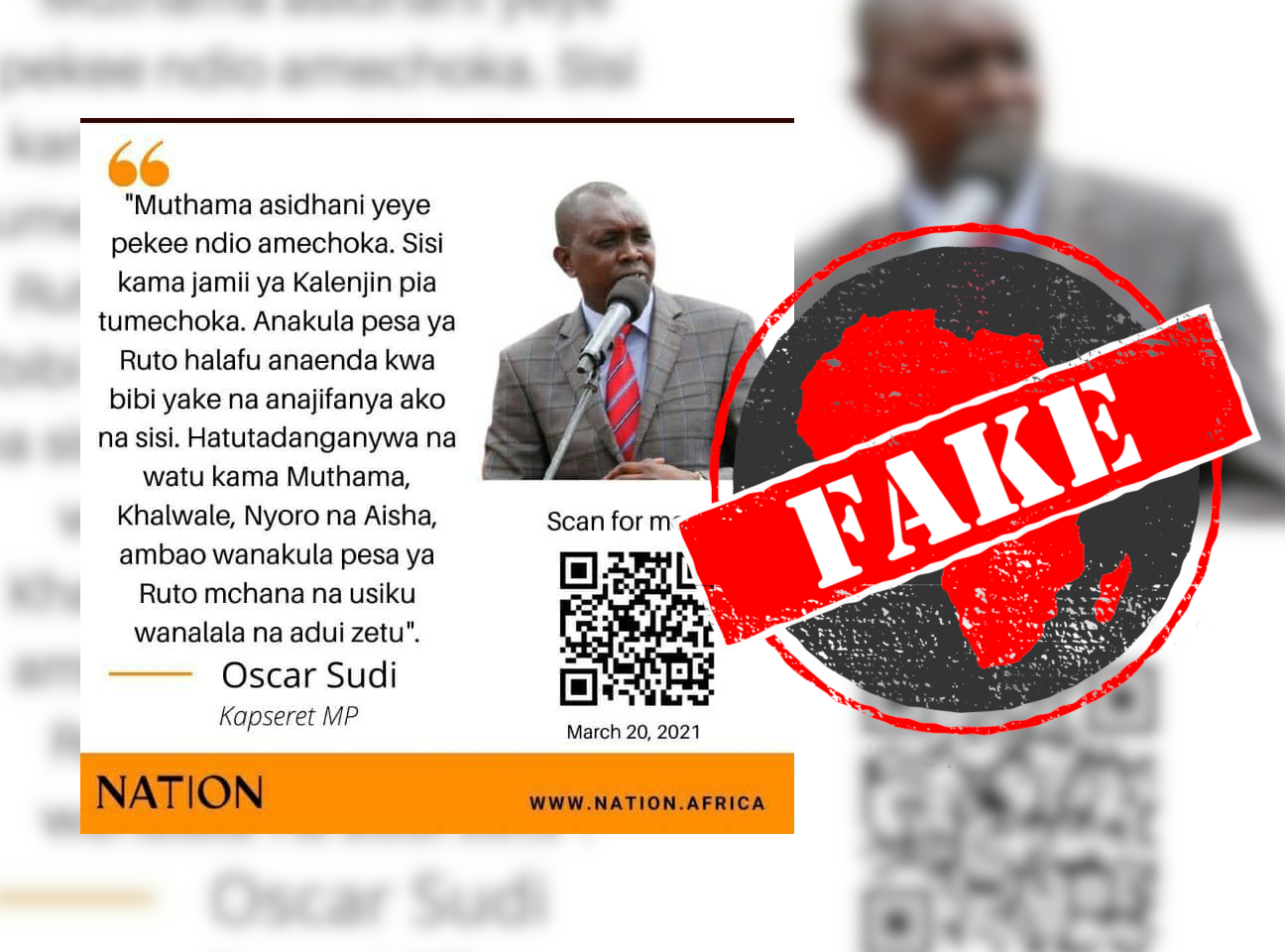A graphic with the logo and address of the Nation website – www.nation.africa – that attributes a sensational quote to Kenyan member of parliament Oscar Sudi started circulating on Facebook on 21 March 2021.
In the quote, the lawmaker seems to accuse United Democratic Alliance party leader Johnstone Muthama of double dealing.
“Muthama asidhani yeye pekee ndio amechoka,” it reads, in Kiswahili. “Sisi kama jamii ya Kalenjin pia tumechoka. Anakula pesa ya Ruto halafu anaenda kwa bibi yake anajifanya ako na sisi. Hatutadanganywa na watu kama Muthama, Khalwale,Nyoro na Aisha,ambao wanakula pesa ya Ruto mchana, usiku wanalala na adui zetu.”
This roughly translates as: “Muthama should not think he is the only one who is tired. As the Kalenjin community, we are also tired. He is using deputy president William Ruto’s money and is secretly supporting his wife for the senatorial seat but pretending to be with us. We will not be fooled by people like Muthama, [Boni] Khalwale, [Ndindi] Nyoro and [Aisha] Jumwa who eat Ruto’s money during the day and sleep with our enemies at night.”
The quote has also been posted in a graphic without Nation’s branding, and in the text of Facebook status updates.
Agnes Kavindu Muthama, Johnstone Muthama’s wife and a member of the Wiper party, was recently declared the winner of a senate by-election in Machakos county.

‘Do not fall for fake news’
On 21 March, Nation posted the graphic on its verified Facebook page, stamped “FAKE”.
“FAKE NEWS ALERT!” it wrote. “Please be advised that the quote doing rounds on social media is a fake. Do not fall for fake news.”
Sudi also posted the graphic on Facebook, again stamped “FAKE”. “Ignore such fake news,” he said.
Republish our content for free
For publishers: what to do if your post is rated false
A fact-checker has rated your Facebook or Instagram post as “false”, “altered”, “partly false” or “missing context”. This could have serious consequences. What do you do?
Click on our guide for the steps you should follow.
Publishers guideAfrica Check teams up with Facebook
Africa Check is a partner in Meta's third-party fact-checking programme to help stop the spread of false information on social media.
The content we rate as “false” will be downgraded on Facebook and Instagram. This means fewer people will see it.
You can also help identify false information on Facebook. This guide explains how.


Add new comment